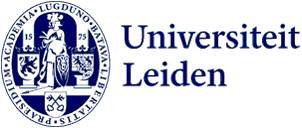
Research: large majority of South Holland residents support increase in defence budget
There is broad support for the active involvement of the Netherlands in international cooperation. This is shown by a new public opinion survey among residents of South Holland, conducted by researchers from Leiden University.
On 24 and 25 June, The Hague – and thus South Holland – served as the backdrop for the NATO summit. This summit focused in particular on increasing defence spending by NATO member states to 5%. But what do the people of South Holland actually think about this? Ongoing public opinion research by Leiden University into social polarisation reveals some initial findings. For example, nearly two-thirds of South Holland residents support the new defence budget.
Bevindingen
Sixty percent of citizens agree that the Dutch government ‘should regularly cooperate with other countries to improve global security’. An additional 5% believe the Netherlands ‘should play a major and leading role in enhancing global security’. Only 5% agree that the country should not get involved at all in conflicts and wars in other countries, while 18% think the Netherlands should intervene only when there is a direct threat to the country. The remaining 12% support ‘occasionally helping other countries if they are threatened by conflict or war’.

Several policy proposals related to defence policy enjoy broad public support. Sixty-four percent of people support increasing the defence budget to 5%. Support for this increase is particularly strong among voters of the VVD (84%), SGP (83%), ChristenUnie (79%), and CDA (75%). Only among supporters of Partij voor de Dieren (41%) and FvD (19%) is there a minority in favour of raising the defence budget to 5%.
Continued military support for Ukraine also enjoys broad support: 67%
Sixty-six percent of citizens disagree with the idea that the Netherlands should contribute less frequently to joint NATO missions. Continued military support for Ukraine also enjoys broad backing: 67%. The reintroduction of conscription for Dutch citizens aged between 18 and 45 is more controversial: 44% are in favour, 38% are opposed, and 18% are undecided. Another contentious issue is military exercises in protected nature reserves, with 51% against and 37% in favour.
Defence and foreign policy is identified by 8% of respondents as the most important issue for the Netherlands, and for 20% of the population it is one of the top three issues. In addition, 2% mentioned the conflict between Israel and the Palestinians in the Middle East, and 4% cited the war in Ukraine as the most important issue for the country. In total, more than 30% of the population considers defence policy in general or one of these two military conflicts to be among the three main challenges facing the country.

The public opinion survey was conducted by a team of researchers from the Institute of Public Administration at Leiden University. Data collection was carried out by Ipsos I&O Public between 6 and 22 June 2025. The total number of respondents is 1,244. The sample is representative of the population of South Holland based on gender, age, and educational level. These results are part of a broader, ongoing study on social polarisation in South Holland, commissioned by the Province of South Holland.
Contact:
Dr. Dimiter Toshkov, d.d.toshkov@fgga.leidenuniv.nl
Dr. Lars Brummel, l.brummel@fgga.leidenuniv.nl
